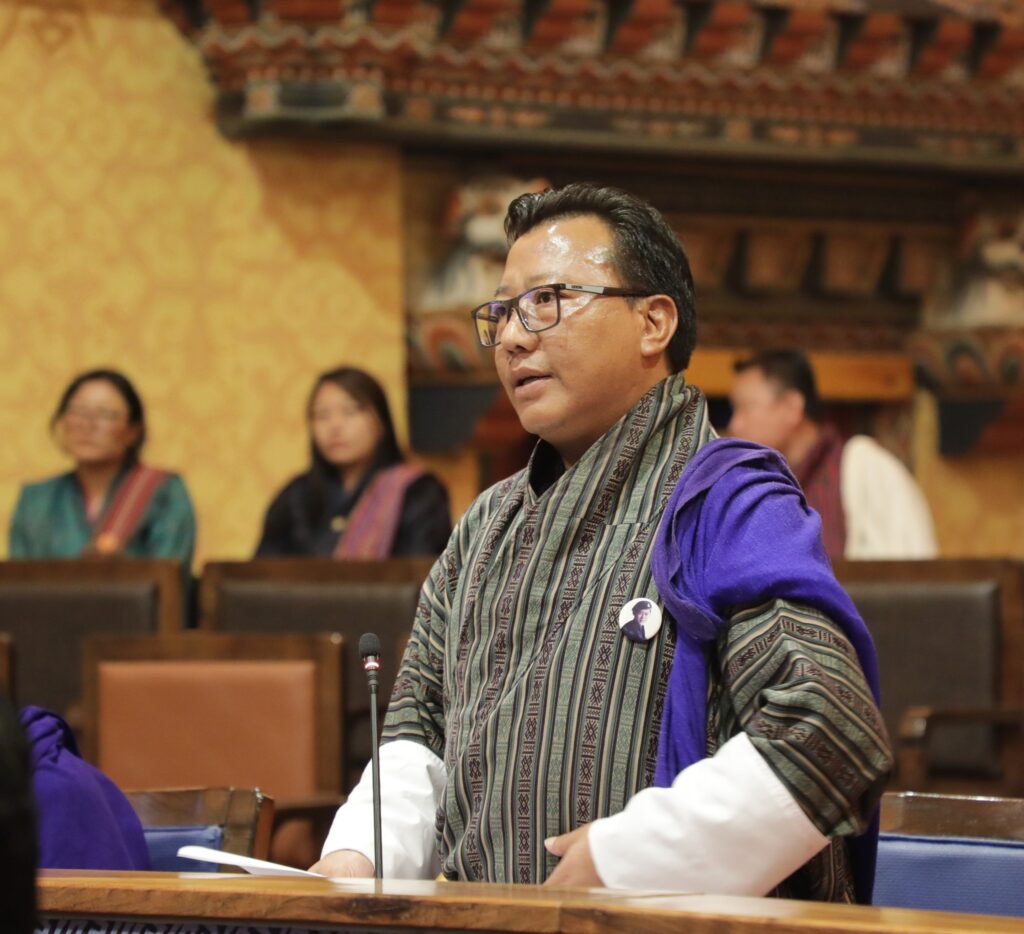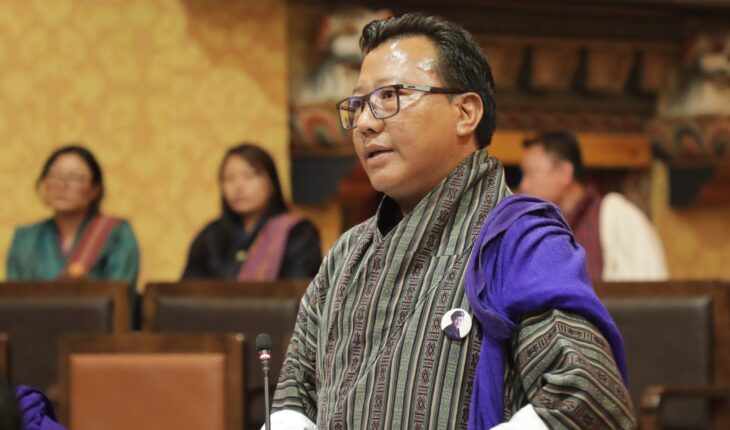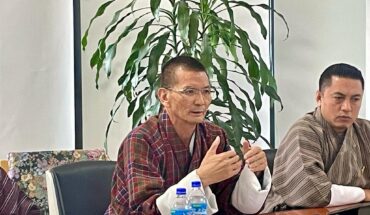
DAWA ZANGMO
Thimphu
Finance Minister Lekey Dorji declared on 23 June that the government is rolling out major reforms to Bhutan’s pension system.
The declaration was made during a National Council session, where he addressed pressing concerns over the fairness, structure, and long-term sustainability of the current pension scheme.
This pivotal development follows an inquiry from the National Council Member representing Trashigang, Sonam Tobgyel, who raised a series of pointed questions about the country’s pension policies, especially the inadequacies faced by current and future retirees.
Member of Parliament Sonam Tobgyel brought to light a series of challenges confronting the existing pension framework. Among his concerns was the modest pension many retirees receive, especially when measured against rising living costs.
He also underscored the inequity that arises when salary increments for civil servants are not reflected proportionally in pension adjustments.
“The monthly pension benefits are meager for many retired civil servants, and this reflects a deeper issue with how we design and adjust our pension system,” Tobgyel stated. “Moreover, it is unjust when retired employees do not benefit from civil service salary hikes post-retirement.”
Another fundamental flaw he flagged was the limited coverage of Bhutan’s pension system.
According to data shared during the session, the system currently includes only around 70,000 individuals in a country with a population exceeding 700,000.
Many workers also fall short of meeting the minimum 20-year service requirement, making them ineligible for pension benefits.
“This not only affects the pension fund’s financial viability but also leads to a drain of institutional knowledge as experienced personnel leave without adequate support,” Sonam Tobgyel warned.
Responding to these concerns, Finance Minister Lekey Dorji acknowledged that Bhutan’s pension system requires a comprehensive overhaul.
“We recognize that strengthening the culture of retirement planning and securing financial stability for our retirees is an urgent priority,” the minister said.
He revealed that the Ministry of Finance has already initiated a series of assessments and reviews of the existing pension structure, with special focus on the National Pension and Provident Fund (NPPF).
The reviews are being conducted using international best practices to ensure that Bhutan’s pension framework becomes more equitable, inclusive, and sustainable.
A key reform currently underway is a full actuarial valuation of the pension system. This in-depth analysis, which began in 2024, is being conducted to assess the system’s current viability and project future outcomes under different policy scenarios. The results of this study are expected by the end of June 2025.
“This comprehensive assessment will help us better understand the challenges and guide future policy decisions based on sound data,” Lyonpo Lekey Dorji explained.
The finance minister explained that although Bhutan’s pension model is designed to be contributory, in practice, it functions more like a pay as you go system.
This means that the funds collected from today’s workforce are used to pay for current retirees, creating a reliance on intergenerational financial transfers.
This structure poses a long-term sustainability risk, especially as Bhutan’s demographics shift. With an aging population and a shrinking workforce, the pressure on current workers to fund pensions for retirees is expected to intensify.
The current pension formula bases payouts on a retiree’s last drawn basic salary. As it stands, retirees receive a maximum pension of 40 percent of a Cabinet Secretary’s final salary and a minimum of 40 percent of a level civil servant’s final salary.
“These thresholds were determined through political negotiations rather than based on actuarial or economic analysis,” the minister noted, emphasizing the need for professional restructuring to ensure equity and financial sustainability.
A particularly troubling aspect of Bhutan’s pension framework, as highlighted during the session, is its extremely limited reach. Only around 10 percent of the national population is currently covered under the pension scheme.
This leaves a vast majority comprising private-sector workers, farmers, and informal sector employees outside any formal retirement safety net.
“We operate on the assumption that the government will somehow support those left out, but that approach is neither sustainable nor fair,” Lyonpo Lekey Dorji said.
“The critical question remains how do we bring the remaining 90 percent of the population under some form of pension or social protection?”
In response, the Ministry of Finance, in collaboration with the Prime Minister’s Office, is exploring the development of a national social protection mechanism aimed at expanding pension coverage to the broader population.
“If we do not undertake timely reforms, future generations of workers may find themselves without any retirement security,” the finance minister warned.
“More alarmingly, we risk losing valuable knowledge transfer between generations, as institutional memory is lost with each unretired, unsupported departure.”
To address some of the immediate concerns, the government has already taken initial steps. One of the first changes is the extension of the minimum service period for pension eligibility from 20 years to 23 years.
This move is expected to reduce the number of early withdrawals and increase the contribution base.
In addition, the NPPF has been instructed to enhance the quality of its investment portfolio. This includes diversifying assets and seeking higher, sustainable returns to better support long-term pension obligations.
“We are also looking at revising the retirement age and the age at which pension benefits become accessible,” the minister said. “These adjustments, combined with enhanced investment strategies, will help us strengthen fiscal responsibility and improve the overall health of the pension fund.”
The finance minister assured the National Council and the public that his ministry is fully committed to addressing all pension related issues through evidence-based and consultative policymaking.
“This is not just about numbers or percentages,” he said. “This is about the lives of thousands of Bhutanese who have served the country loyally and deserve financial dignity in retirement.”
The reforms being discussed mark one of the most significant overhauls of Bhutan’s pension system in recent decades.





